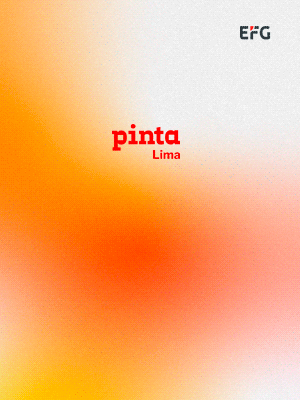NEW YORK-BASED GALLERY HAUSER & WIRTH PRESENTS LUCHITA HURTADO. TOGETHER FOREVER
On view 10 September – 31 October 2020, and organized in close collaboration with Hurtado earlier this year, the intimate exhibition Luchita Hurtado. Together Forever presents over thirty works from the 1960s through the present day in which she explored the self and the surrounding world as her primary subject. Many of these highly personal artworks – recent paintings of birth along with early works on paper that have remained largely private up to this point – will be on view to the public for the first time.

Luchita Hurtado (1920 – 2020) documented the interconnectedness of human beings, nature, and terrestrial life through a diverse body of work and a practice that spanned more than eighty years. This show celebrates the various forms of the artist throughout her career and life. Even in the last days of her life, Hurtado continued to experiment and push the boundaries of her own practice.
Parallel to a dynamic period of experimentation between abstraction and figuration in the early 1960s, Hurtado also focused her work inward, marking a trajectory to uncover new forms of self through portraits of herself in mirrors, looking down at her own body, and studies of her shadow. Describing this time in her practice, Hurtado explained in an interview with the Smithsonian Institute: "At a certain point, I said ‘there is no way that I can express, let's say, except by painting myself.’ I said, ‘This is a landscape, this is the world, this is all you have, this is your home, this is where you live.’ You are what you feel, what you hear, what you know."
Throughout her practice up until recent years, Hurtado documented the forms of shadows in photographs and drawings, studying their size, shape, and potential. In early examples from the series included in this exhibition, the artist rendered her own body with oil, charcoal, or graphite on paper, sometimes juxtaposed with her own environment. In some works, a number of figures are depicted. However, these are multiple representations of her own shadow and the artist remains in solitude as her only subject. Another work from the series does not depict a figure at all, but only text where the artist states, “The only reasonable facsimile of me is in my shadow”.
During this solitary time of artmaking, Hurtado served as her own model and prioritized her own subjective experience in the world. These works represent significant moments of introspection, seclusion, and the claiming of time for herself. In an early self-portrait in crayon and ink on paper, the artist is surrounded with the text of her own poem written about family and memories of her life in New York before motherhood. Other works, such as ‘Untitled,’ show the artist interacting with the everyday domestic objects in her home – a bookshelf, a window, a door. Another work, also ‘Untitled,’ shows Hurtado emitting a single tear as she poses amongst plants.
In the most recent paintings on view, Hurtado evolves into the landscape as she explored ways in which her own body would transform and regenerate the earth. Functioning as a symbolic proxy and an intimate meditation on the Earth as mystic progenitor, these works underscore the interconnection between corporeality and the natural world – a delicate balance that is now in jeopardy.
Born in Maiquetía, Venezuela in 1920, Luchita Hurtado dedicated her practice to the investigation of universality and transcendence. Her body of work is cohered through an examination of self-affirmation, introduced in her early period from the 1940s to 1960s through experimentations with abstraction and figuration in acrylic paint, oil, crayon, and ink. Hurtado’s work continued to evolve throughout the late 1960s and 1970s, demonstrating a fluid shift towards representative figuration that led to a production of contemplative self-portraits known as her ‘I Am’ paintings. This series was followed by a group of surrealist ‘Body Landscapes’ wherein the human figure assumes the form of mountains and desert sand dunes. In recent years, Hurtado continued to explore themes of language and nature with her work, focusing on the planet, natural elements, and the environment, in recognition of the urgency of the ecological crisis. Today, her environmental advocacy continues to inform and suffuse the ever-expansive visual language of her practice.
READ MORE: VENEZUELAN ARTIST LUCHITA HURTADO DIES AT 99
In 2019, Hurtado was listed in TIME 100’s most influential people and received the Americans for the Arts Carolyn Clark Powers Lifetime Achievement Award. Recent solo exhibitions include ‘I Live I Die I Will Be Reborn’, at the Serpentine Sackler Gallery, London, UK (2019) that then traveled to the Los Angeles County Museum of Art (2020),‘Just Down the Street’ at Hauser & Wirth Zurich (2020), and ‘Dark Years’ at Hauser & Wirth New York (2019). In 2018, her work was included in the Hammer Museum’s biennial exhibition ‘Made in L.A.' and is featured in public collections worldwide, including The British Museum, London, UK; Hammer Museum, Los Angeles CA; Los Angeles County Museum of Art, Los Angeles CA; The Metropolitan Museum of Art, New York NY; Museo de Arte Latinoamericano de Buenos Aires, Argentina; Museum of Modern Art, New York NY; Museum of Fine Arts, Boston MA; Museum of Fine Arts, Houston TX and San Francisco Museum of Modern Art, San Francisco CA.
Luchita Hurtado. Together Forever
Hauser & Wirth
542 West 22nd Street
New York City 10011




